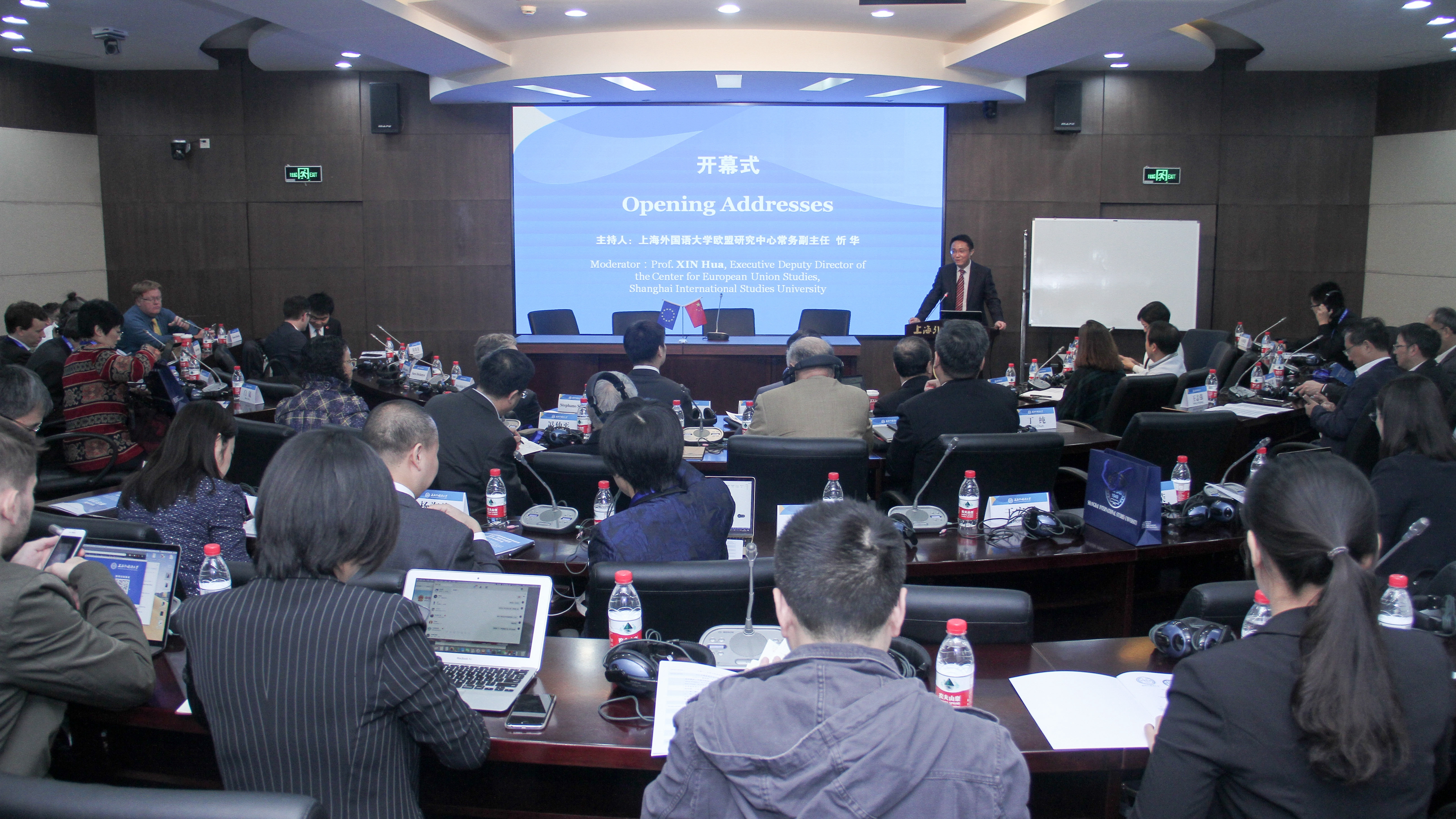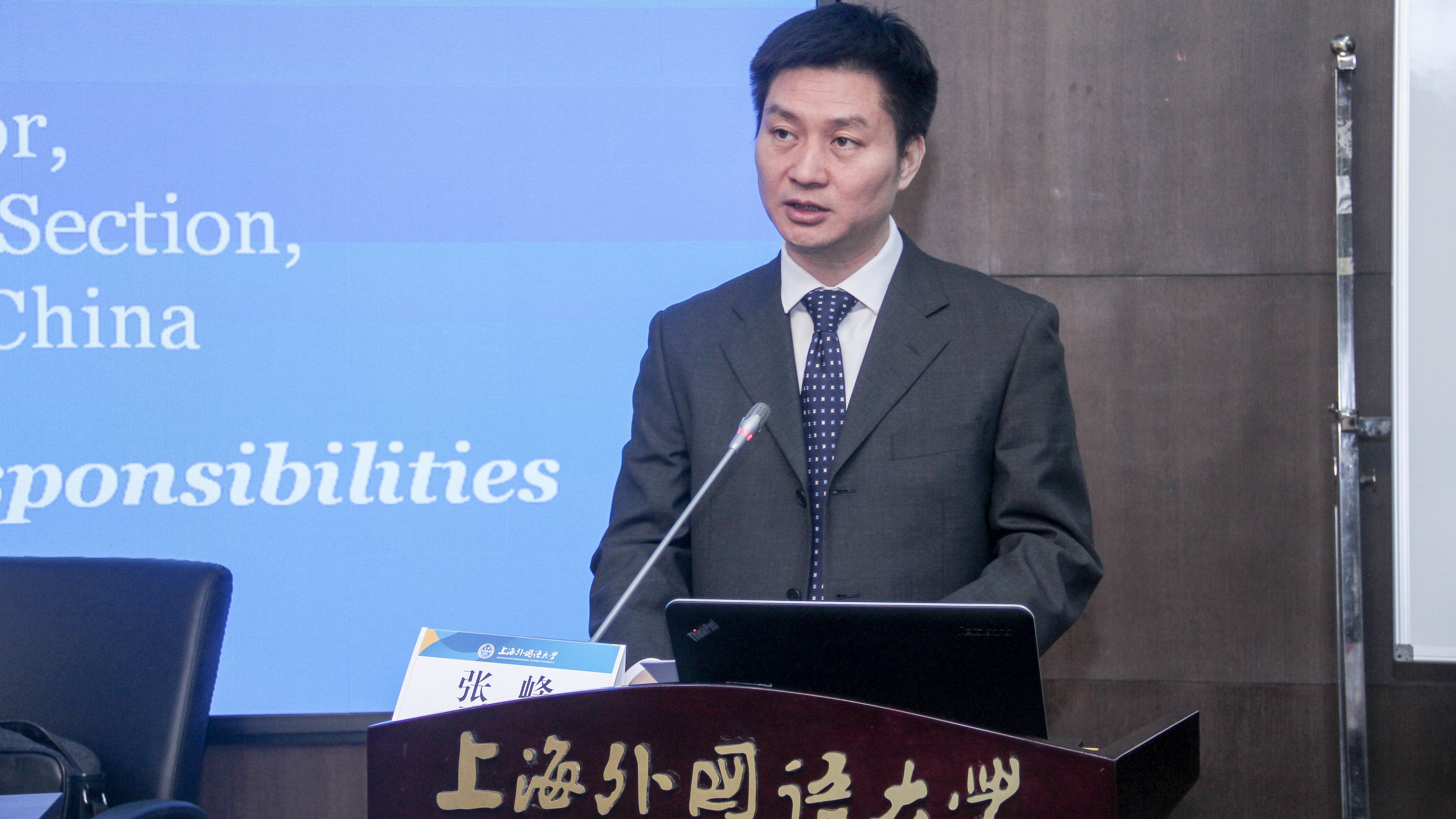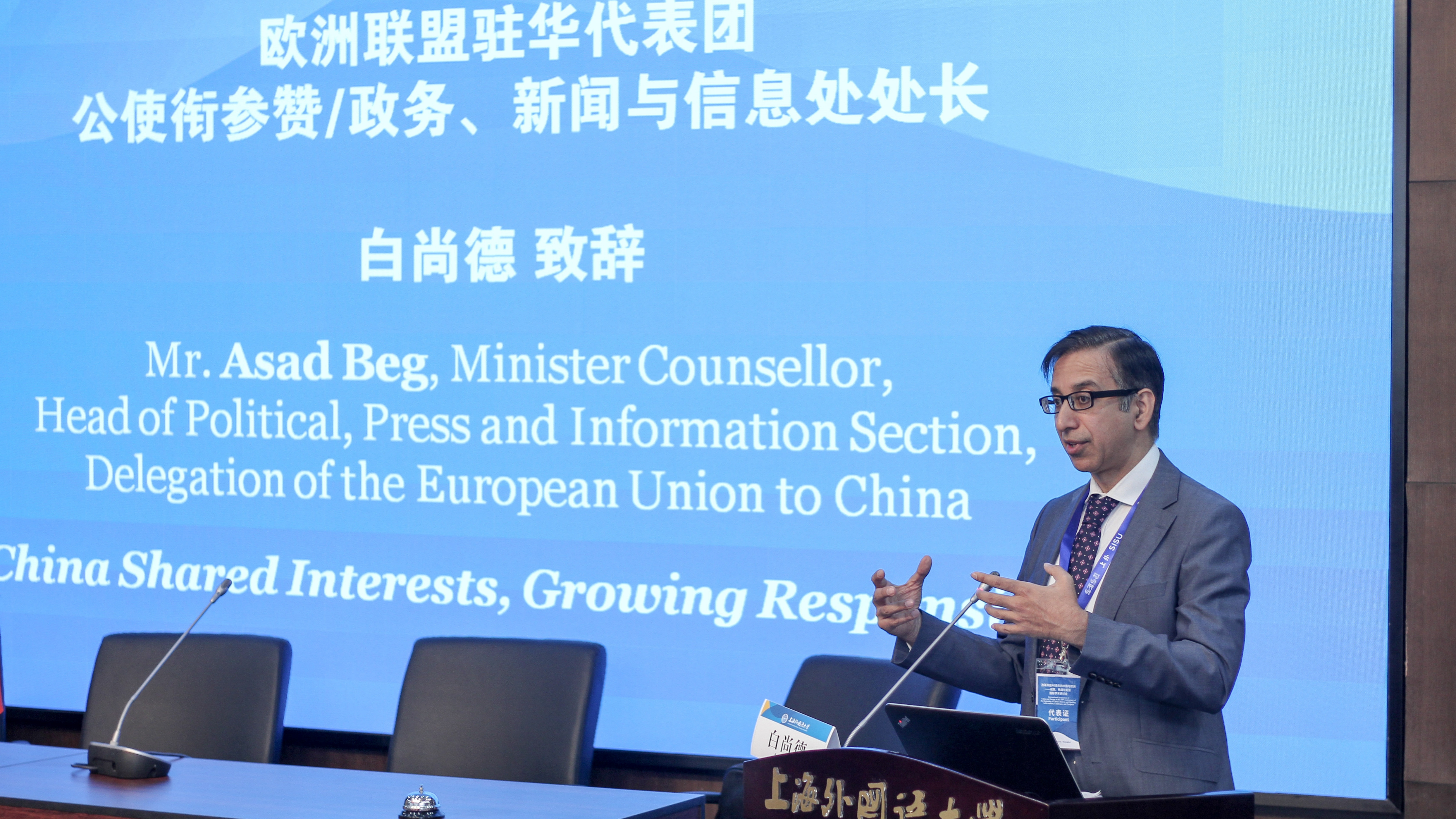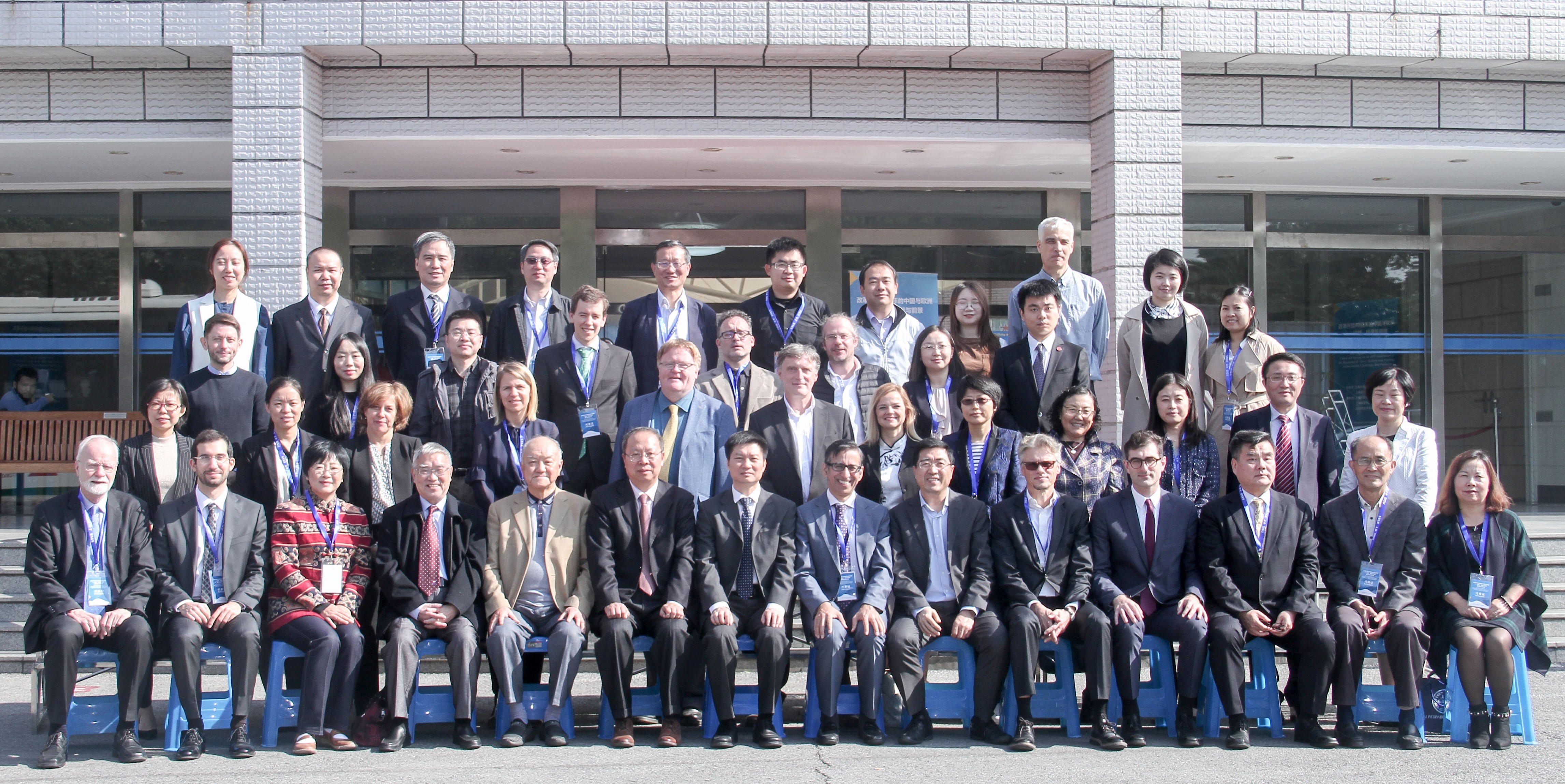2 |
018 witnesses the 40th anniversary of the beginning of China’s reform and opening up, coinciding with the 60th anniversary of the signing of Treaty of Rome, which constitutes the foundation of the course of European integration, and the 15th anniversary of establishing a comprehensive strategic partnership between China and Europe. In 2018, International symposium on “China and Europe on the 40th Anniversary of the Beginning of China’s Reform and Opening: Achievements, Challenges and Prospects” was held in Shanghai International Studies University (SISU) on October 29th. More than eighty scholars and experts from prestigious universities and think tanks in China and Europe gathered in this symposium jointly held by Center for EU Studies of SISU, Shanghai Institute for European Studies (SIES) and College of Europe, Belgian, to share their thoughts on the history, process, collaborative potential, challenges and future prospects for China-EU relations.
Zhang Feng, Vice President of SISU, and Asad Beg, Minister Counselor of Delegation of the European Union to China, delivered keynote speeches on the opening ceremony. Thereafter, five seminars were held on three panels, namely “The Economic Relations between China and Europe”, “Political, Diplomatic, and Security Relations between China and Europe” and “China-Europe Interactions in the Fields of Science, Technology, and Environmental Issues”.
The first seminar focused on “The Interactions between China’s Process of Reform and Opening and the Process of European Integration”. Scholars reviewed the evolution course and structural features of the bilateral economic relations between China and Europe, carried out a detailed analysis on the new changes in the world economic landscape, which includes the multiple crisis confronted the European Union, the adjustments of U.S. economic policies, the rift in the US-EU transatlantic relations, the cognitive dissonance of US, EU and China on global economic governance, etc., and assessed the problems and prospects of the China-EU cooperation under the Belt and Road Initiative.
The second seminar centered around “challenge and prospect of EU-China investment and trade”. The European scholars pointed out that the focus of dispute was shifting from trade to investment, also in the meantime, some European powers, like Germany, showed an increased economic reliance on China. The Chinese scholars made a detailed summary on the potential for future economic cooperation between Europe and China. They also noted that the cognition of European Union and its major members to EU-China economic relations and China’s economic condition was overly affected by American.
The third seminar went on under the topic of “Interaction between the China-Europe
Relations and the International System in the Past 40 Years”. The European scholars elaborated on the huge changes in European Union and European Powers’ perception and assessment of China in the last four decades. They noticed that Europe’s attitude towards China has been subtly changing as China rises. Chinese scholars pointed out the close connection between China’s reform and opening up policy and the development of China-EU relations. And they warned that with more competition between China and Europe in the future, both sides would need to take their responsibility into account while seeking for interests.
The theme of the fourth seminar was “China-Europe Cooperation in Providing Public Product for International Security: Achievements And Prospects of Bilateral Cooperation in Anti-Terrorism, Regional Affairs, Development Assistance, etc.”. European scholars suggested that the US, Europe and China were in need of an institutional framework to properly handle the tripartite strategic relations. They also compared the different effects of the development assistance offered to Central Asia by China and Europe. The Chinese scholars then argued that to enhance the China-EU cooperation, the “Belt and Road” Initiative could be combined with the “Sustainable Development Goals” of the UN. They explicated the significance of China-EU collaboration in fields like strategic security cooperation to the multilateral international order.
The topic of the fifth seminar was “China-Europe Interactions in the Fields of Science,
Technology, and Environmental Issues”. As was pointed out by European scholars, China-EU interactions in science and technology has been playing an important role in China’s reform and opening up. In recent years, many programmatic documents issued by EU on China policy also emphasized the significance and potential of it. Chinese scholars analyzed several considerable collaboration patterns, including a global mechanism for carbon reduction, a framework of climate governance, and the energy cooperation, etc. They also assessed the influence of the changes in the US’s attitude on the China-EU collaboration.
Chinese and European scholars from famous universities and think tanks, diplomats of the Delegation of the European Union to China and the Consulate General of Belgium in Shanghai, and representatives from Friedrich-Ebert-Stiftung and other organizations attended this symposium. As an important event for the European studies community in China, this symposium was also a focused and in-depth exchanges for European and Chinese scholars on issues regarding the present status of world affairs and EU-China relations.







